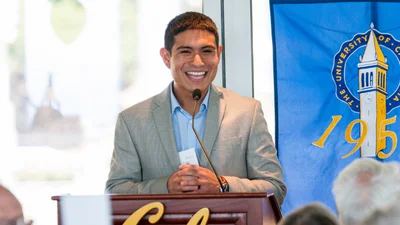Numerous investigations have been announced into the attempted assassination of former President Trump, including the performance by the Secret Service. Along with finger pointing, there will be call for reforms. Yet I fear the root cause of the disastrous decline of the USSS will be overlooked.
In the rush to respond to September 11, Congress hurried to create the Department of Homeland Security. The continuing problems of the bloated agency have been chronicled. What has been overlooked is how the Secret Service was jettisoned in the process from the Department of Treasury, where it enjoyed a long and distinguished history, and forced into the DHS. It has never recovered.
The Secret Service started in 1865 at the close of the Civil War. At that time, it was estimated that almost one-half of the money in circulation was counterfeit. On April 14, 1865, then-Secretary of Treasury Hugh McCulloch proposed forming a federal anti-counterfeiting unit to President Lincoln. The official conversation was one of the last Lincoln had. He was assassinated that same evening.
The young Secret Service Division of the Department of the Treasury was successful at helping to curtail the epidemic of counterfeit currency and, as a result, was given additional responsibilities to combat fiscal fraud against the government.
When President McKinley was assassinated in 1901, the Secret Service was the only viable federal law enforcement agency that could take on the responsibility of presidential protection full time. In 1906, the Service was given statutory authority to protect the nation’s commander in chief. The new federal law enforcement agency performed its duties honorably. Over the years it slowly expanded its dual missions of financial investigations and protection. Treasury’s Secret Service was considered to be the elite force of U.S. federal law enforcement.
I had the honor of serving in the USSS in the mid-1980s as a Special Agent in the Washington, D.C. Field Office. I saw firsthand the proud culture, camaraderie, and professionalism of the Service.
While failures by the agency that resulted in the latest assassination attempt will receive the headlines, there are other important breakdowns related to the creation of DHS that also deserve attention.
Congress passed the Customs Organization Act in 1789, making the new Customs agency part of the Department of Treasury. It is the oldest law enforcement arm of the United States. Until the income tax became a permanent feature of the U.S. tax system with passage in 1913 of the Sixteenth Amendment, the U.S. government depended on customs duties as its primary revenue source.
The mission at Customs grew. By the 1980s, the Customs Office of Enforcement was charged with enforcing over 400 laws - more than the FBI. Although the focus at the time was the War on Narcotics, just about anything that had nexus to the border came under Customs’ domain. Its criminal expertise revolved around international trade in its various forms. Long before September 11, the U.S. Customs Service was part of our nation’s first line of defense.
In 1987, I transferred from the Secret Service to Customs. The bulk of my 26-year federal career was as a Special Agent for U.S. Customs. I was an undercover arms dealer for two years. Later, I headed the world’s first international money laundering task force based in the American Embassy in Rome. We targeted the mafia by looking at the flow of dirty money.
For many years, I was also the Customs liaison to Treasury’s FinCEN, a joint Customs and IRS initiative designed to get financial intelligence, our primary anti-money laundering countermeasure, into the hands of federal, state and local criminal investigators so that they could more effectively pursue their investigations.
The record shows that Customs criminal investigators were the most effective anti-money laundering force of the U.S. government. Most of the major cases of the 1980s and 1990s were initiated by Customs. Anti-money laundering was a true priority for Customs management. Since it was part of Treasury, its core mission was to understand and follow the money and value trails involving the misuse of international trade.
September 11 changed everything. The CIA and FBI, the government agencies most responsible for the terrorist attacks on our homeland, were rewarded with increased authorities, manpower and budget. The enforcement arm of the Department of Treasury, which had less to do with September 11, suffered. The Secret Service and Customs were moved to the newly-created DHS. Their proud Treasury legacy was ignored.
Once in DHS, Custom’s Office of Enforcement became part of Immigration and Customs Enforcement (ICE). The merger of Customs and the old Immigration and Naturalization Service (INS) simply hasn’t worked. Priority is given to immigration. Legacy customs work has faltered. Trade fraud and anti-money laundering expertise has all but disappeared.
This hollowing out of traditional customs enforcement has had devastating consequences that affect the safety and security of the American people. The explosion of crime has resulted in unprecedented levels of criminal proceeds.
In order to reverse the deteriorating paradigm facing these critical agencies, we must re-vitalize the expertise of U.S. Customs investigative Special Agents.
I urge Congress and the new administration to correct these mistakes resulting from the creation of DHS. Congress should re-establish Treasury’s Undersecretary of Enforcement, and put the Secret Service and Customs back into the Department of Treasury where they actually performed best for the American people. Restore the proud and effective Treasury enforcement legacy.









